Transgender writer, editor and independent scholar
Posted: 10/08/2013 9:06 pm
Beyond Transition: Documentaries Capture Rich, Complex Transgender Lives
Mass media have a history of erasing transgender people's
complexities and lived experiences. It happens whenever there's an act
of misgendering or misnaming or a reliance on social assumptions that
trans existence is essentially tragic or reducible to medical
procedures. Thankfully, this year has seen a steady stream of
trans-focused independent documentaries to offer a counterpoint,
illuminating how nuanced, flawed, individualistic, and human trans lives
are.
I spoke via email with several filmmakers to learn how they worked
toward capturing rich portraits of trans folks that evoke resilience,
humor, history, and joy. A common theme emerged from our conversations:
Gender transition, while a significant milestone, is not the
only, or even necessarily the
defining,
part of every trans person's life. It's an ongoing process that informs
and interacts with other roles and identities, albeit one that is too
often rendered tragic by medical and legal stumbling blocks and social
stigma. And, like any major change, it's worth celebrating -- even as
life goes on despite
and because of it.
---
What's the T?
"It started when I saw Dannan, a young trans girl on [TV]," says Cecilio Asuncion, the producer and director of
What's the T?
"As a gay Asian man, I barely saw any Asian faces on TV or film."
Inspired, Asuncion decided to make a documentary on women, mostly women
of color, whom Dannan could look up to.
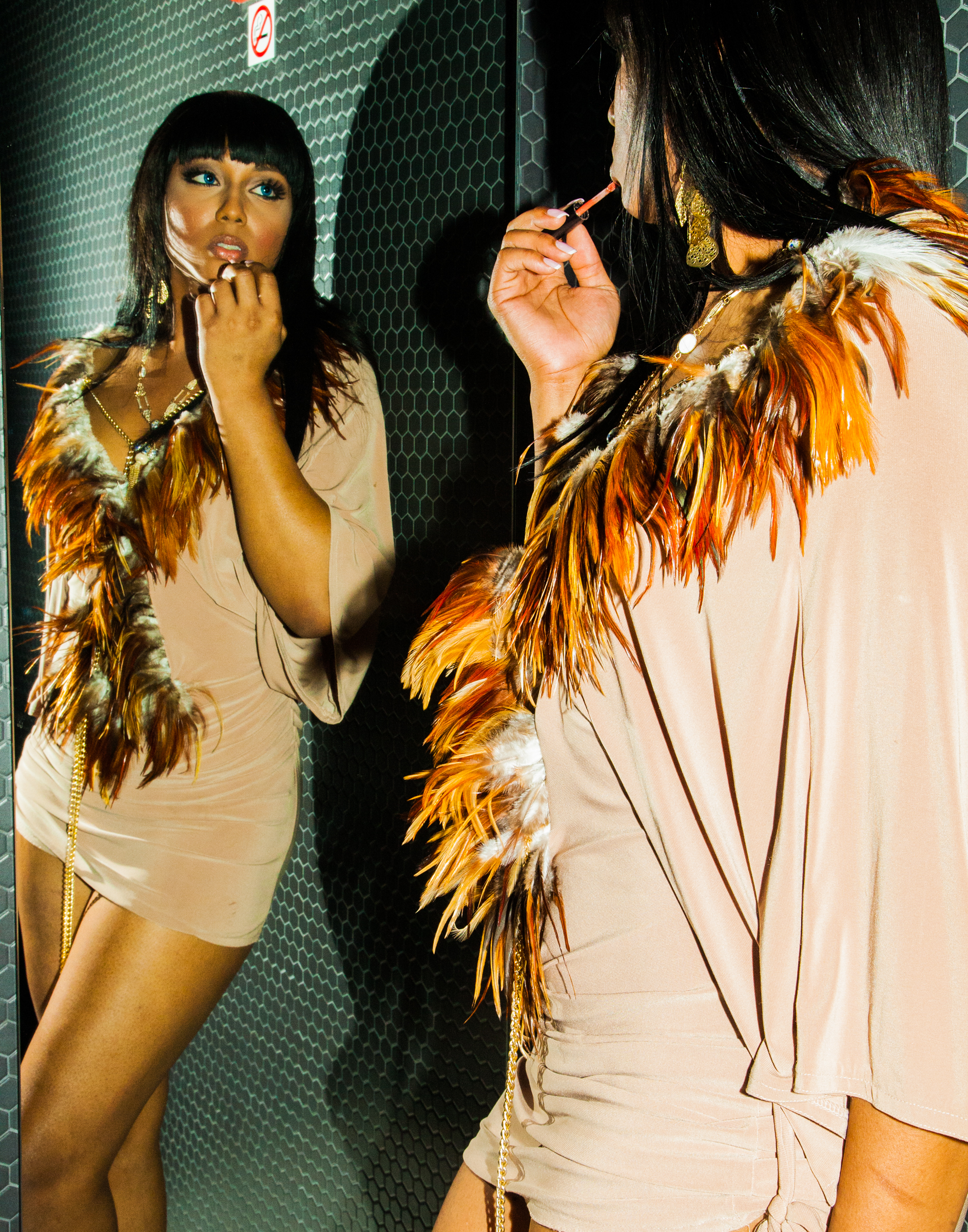

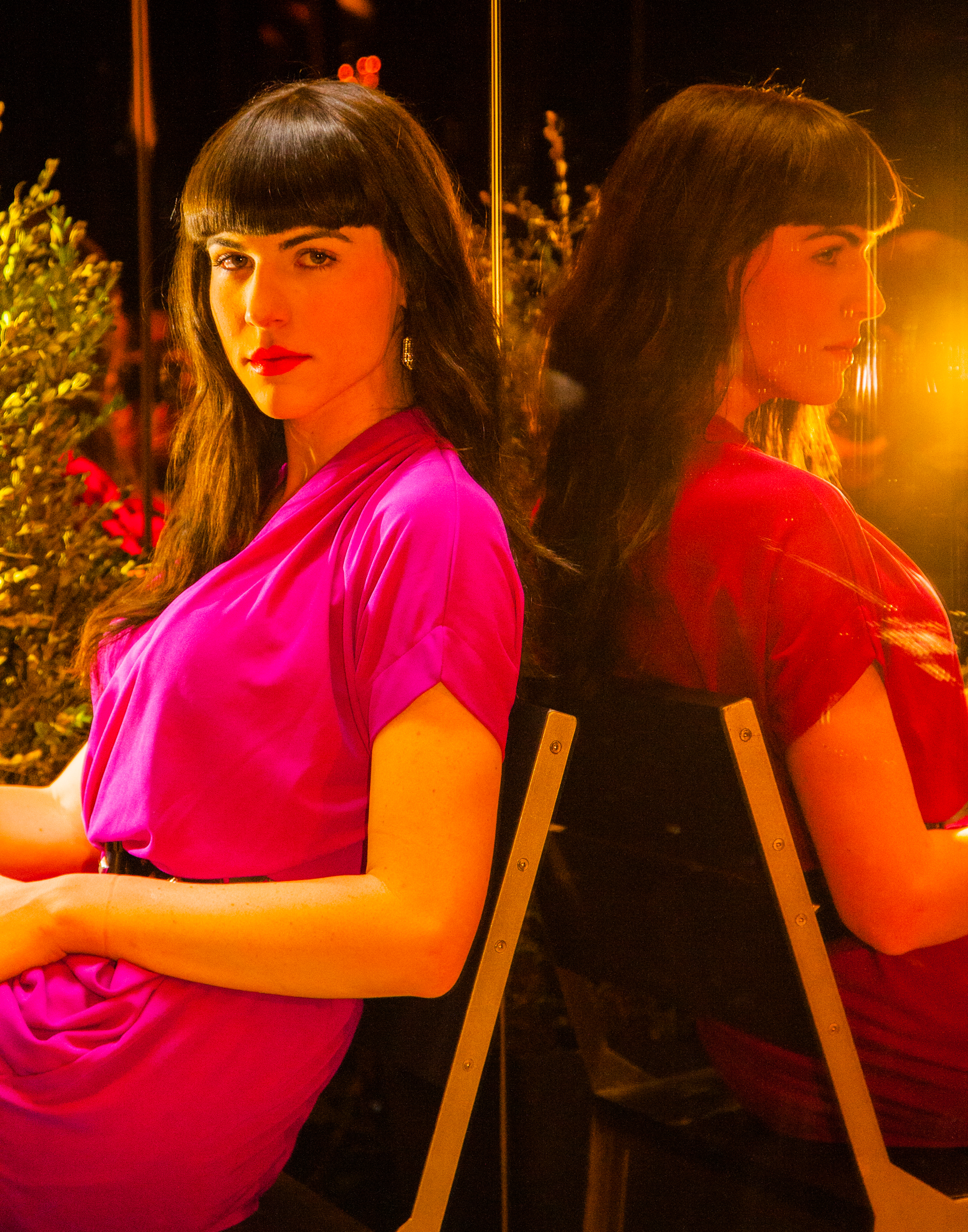
Rakash, Vi, and Mia of What's the T? (photo credit: Enrico Dungca; click to enlarge)
"While we all have our trials, I wanted to highlight [the women's] more resilient and positive aspects," he explains.
What's the T?
features interviews with five trans women in their everyday
environments: at work, out with friends, performing in shows and balls,
at school, with partners, or at home preparing meals, getting dressed,
or relaxing. The women talk about the ups and downs of their varied
lives, veering toward and away from discussing transition as it relates
to employment, friendship, and love.

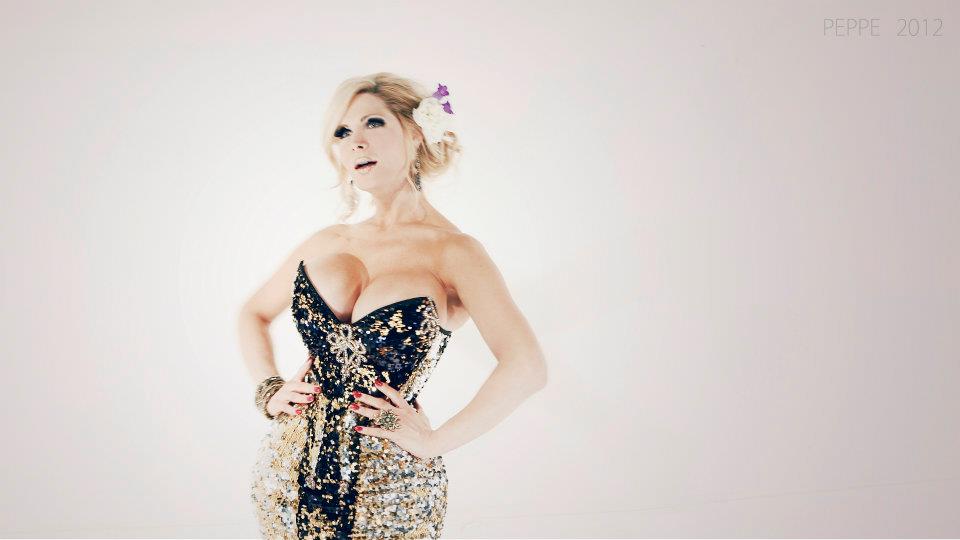
Nya and Cassandra of What's the T? (photo credit: Enrico Dungca; click to enlarge)
Asuncion is particular about what he shows and what he doesn't. He
relates how documentaries about trans women seem to usually be about
"how sad or how hard a trans woman's life is" and "would always end with
the SRS," referring to sex reassignment surgery, also known as gender
confirmation surgery. While undue suffering is real and genital
reconstruction is important to many transitioning people, Asuncion
purposefully avoids drawing the conclusion that transition or womanhood
is "incomplete" without surgery (or hormones).
"To me, it was not important what is in between a person's legs," he explains, "but what a person stands for."
(Catch What's the T?
at Cinema Diverse! The Palm Springs
Gay & Lesbian Film Festival, the Pensacola LGBT Film Festival and
the Portland Lesbian and Gay Film Festival. Learn more here.)
---
Finding Kim
Though
What's the T? tells vital narratives, no film can
capture the breadth and diversity of trans people's experiences. While
Asuncion's documentary finds its subjects happily employed and socially
accepted and visually celebrates their youth and success in a filmed
fashion shoot, Aaron Bear and Consuelo Crow's
Finding Kim offers an interesting contrast.
"Kim's situation is pretty extreme because of his age, his very
conservative parents, and his financ[es]," explains cinematographer
Gabriel Bienczycki. "[His] is a story of overcoming substantial
obstacles ... in the name of internal harmony."
Adds Bear, "While there have been other films that have documented
people going through transition, Kim is doing this at almost 50 years
old."
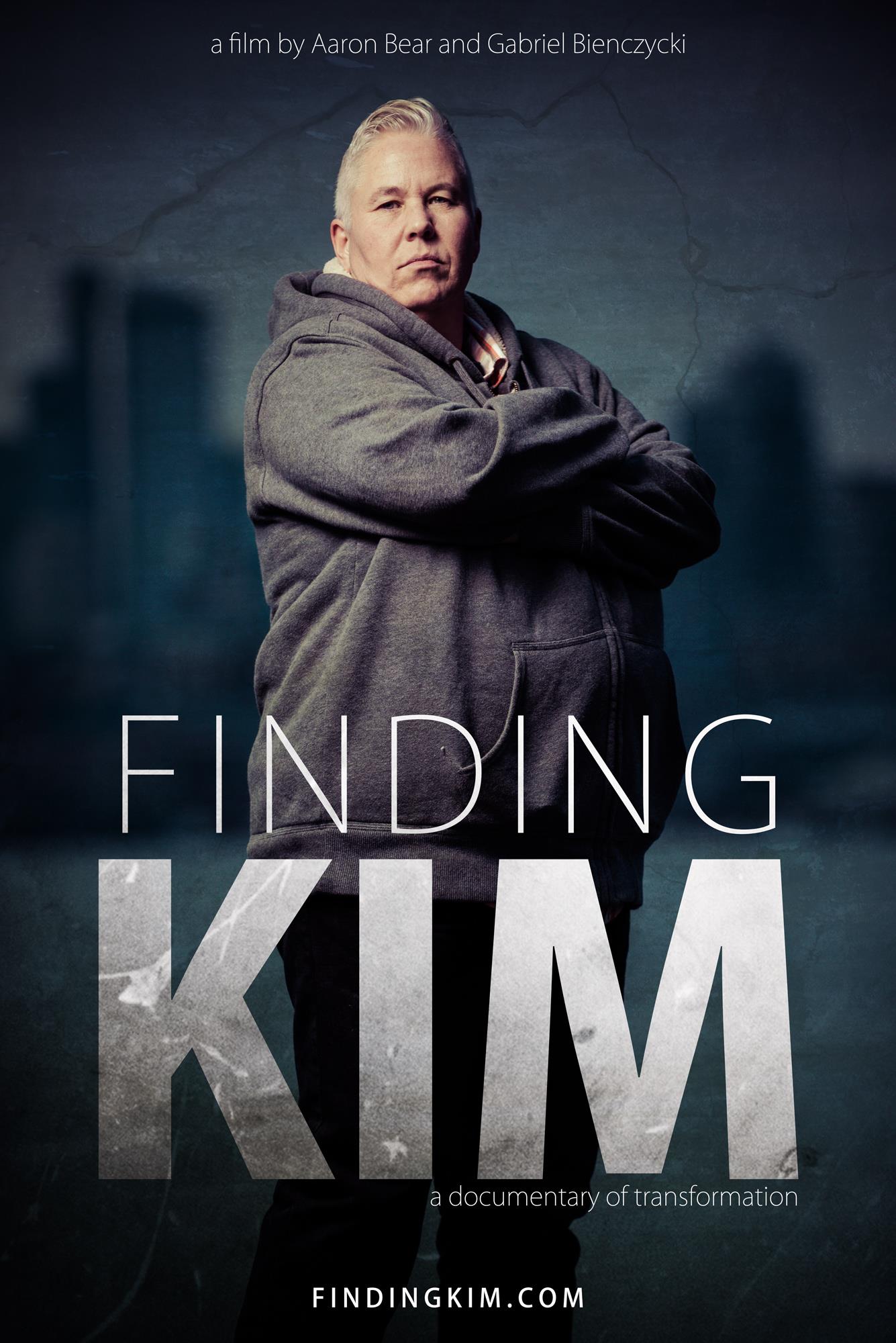
Photo credit: Gabriel Bienczycki (click to enlarge)
As personal friends of Kim, a Seattle-based, middle-aged trans man,
Bear, Crow, and Bienczycki are filming his journey in hopes of helping
younger trans folks find themselves.
While they report substantial support from trans viewers and say that
the project has had a positive impact on Kim himself -- a highlight
being meeting his hero, trans pioneer Jamison Green, during filming
("the best day of my life!") -- Bear also describes facing valid
resistance from some viewers over the fact that he's a (queer) cisgender
man creating a documentary about a trans person. In response, he
states, "I'm closely connected with Kim on a friendship level. This is
Kim's story. ... Simply put, I'm documenting what is presented to me."
Currently, filming is a work in progress featuring a "very cinematic
and polished approach" and aiming to "create a cohesive language that
communicates the longing for completion and a sense of journey."
(Finding Kim
is intended for release in Fall 2014. Learn more here.)
---
Zanderology
Zanderology, like
Finding Kim, is a story of a
trans man that emerged out of a deep friendship. Its subject, Zander
Keig, and its director/producer, Rev. Megan Rohrer, are two transgender
community advocates who previously co-edited
Letters for My Brothers (2012), an anthology of "transitional wisdom" by trans men for trans men.
"I was moved by all the support from individuals who said that that book had transformed their lives," says Rohrer.
Zanderology is a way to extend the healing act of storytelling into a different medium.
And
different it is. For the film, Rohrer uses animations
"hastily drawn to look like chalk board illustrations." He explains that
this tactic was employed as much to avoid using photographs ("I don't
want people watching the film to be looking for clues about Zander's
identity by focusing on ... the flaps and folds that others get to keep
private") as to issue a "double-dog dare for other filmmakers,
particularly the trans ones, to tell their stories" without feeling
pressure to present a "perfect" product.
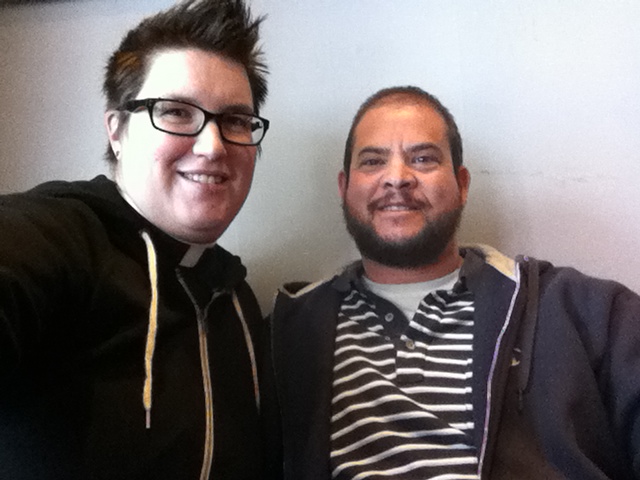
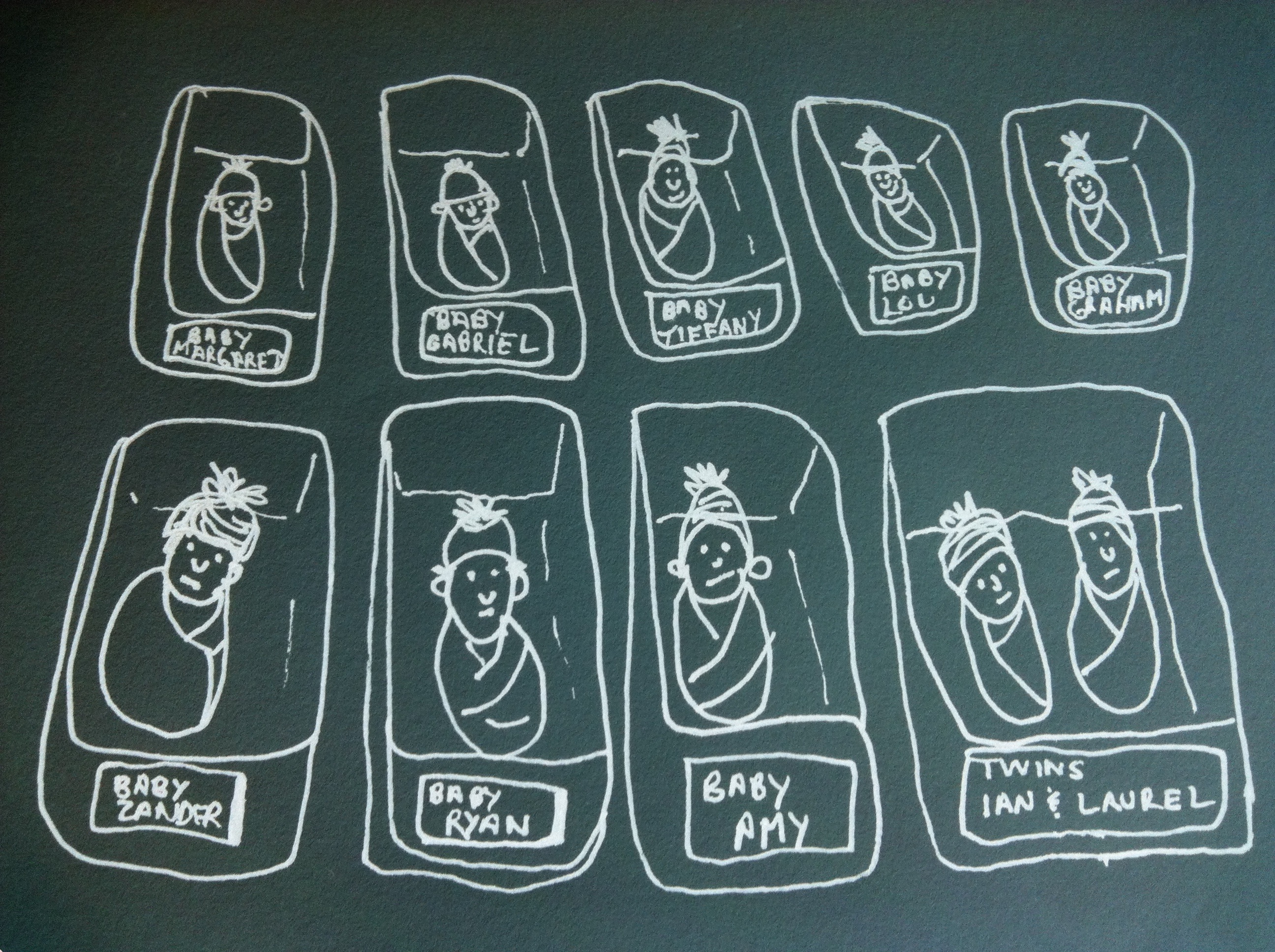
Megan and Zander of Zanderology (photo credit: Megan Rohrer; click to enlarge)
In summary, Rohrer describes how "[gender] transition may be one of
the least interesting parts of Zander's story." A slew of health issues;
stints in a gang, the Coast Guard, and as an undercover drug officer; a
varied education; and a career in social work help Zander's story go
"beyond
telling people that 'it gets better,'" according to Rohrer. "[This film]
shows you how."
(Zanderology
will begin touring at film festivals and queer conferences in 2014. Learn more here.)
---
Kate Bornstein Is a Queer and Pleasant Danger
"I was working on various portraits and found out that there wasn't a
film on Kate yet -- and the world needs a film on Kate," says Sam
Feder, director of the critically acclaimed 2008 documentary
Boy I Am. In their latest project,
Kate Bornstein Is a Queer and Pleasant Danger, Feder turns the lens toward a trailblazing trans elder.
Importantly,
Kate Bornstein is, according to Feder, a "film
about a trans person that's not just about her being trans." While they
express gratitude for documentaries that educate (like their own first
film), they state that "it's time that films with trans people are also
about the amazing work we do in the world." Bornstein, an author and
performance artist known for being a "gender outlaw," certainly does
amazing work. Feder agrees, stating, "Kate is brilliant, beautiful, and
her work saves lives. It saved mine."
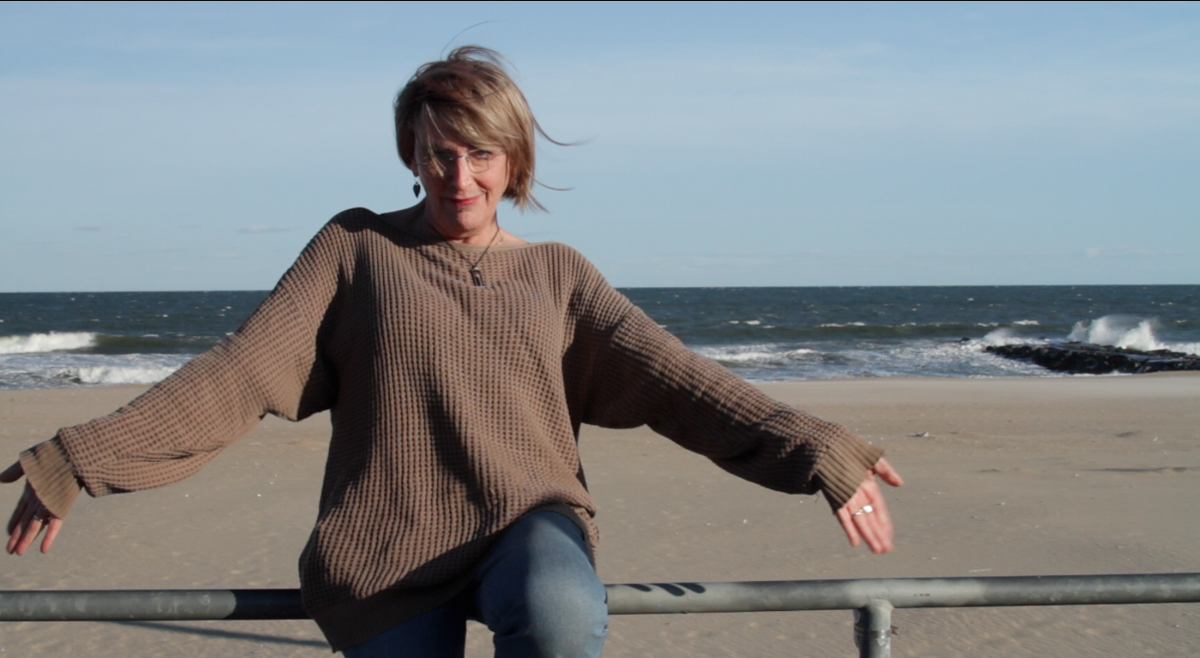
Kate Bornstein (photo credit: Sam Feder; click to enlarge)
There's clearly many out there who wish to hear more of Kate's story,
as evidenced by the incredible sum of $24,500 that Feder was able to
raise through a Kickstarter campaign. They partly attribute this to
Bornstein's universal message: "Do whatever it takes to make your life
more worth living. Just don't be mean." Bornstein's work, including
Gender Outlaw,
My Gender Workbook, and
Hello, Cruel World: 101 Alternatives to Suicide,
gives trans people "space and language to figure out where [they] fit
in the world," says Feder. "This film is my attempt to get her work to
an even larger audience than she [already] has."
(Kate Bornstein Is a Queer and Pleasant Danger
will premiere in early 2014. Learn more here.)
---
Sticks and Stones and The Golden Age of Hustlers
Silas Howard's inspiration for
Sticks and Stones, his new
short documentary on transgender performer Bambi Lake, echoes Feder's:
"Bambi's story isn't one I've heard yet in film, and [I] feel attached
to it personally as a trans person and musician." Howard -- who, as a
member of pioneering '90s queercore band Tribe 8, holds a place in queer
history in his own right -- feels compelled to preserve Lake's
narrative for future generations. "Her story is such a part of my
story, one I fear is left out of history far too often," he explains.
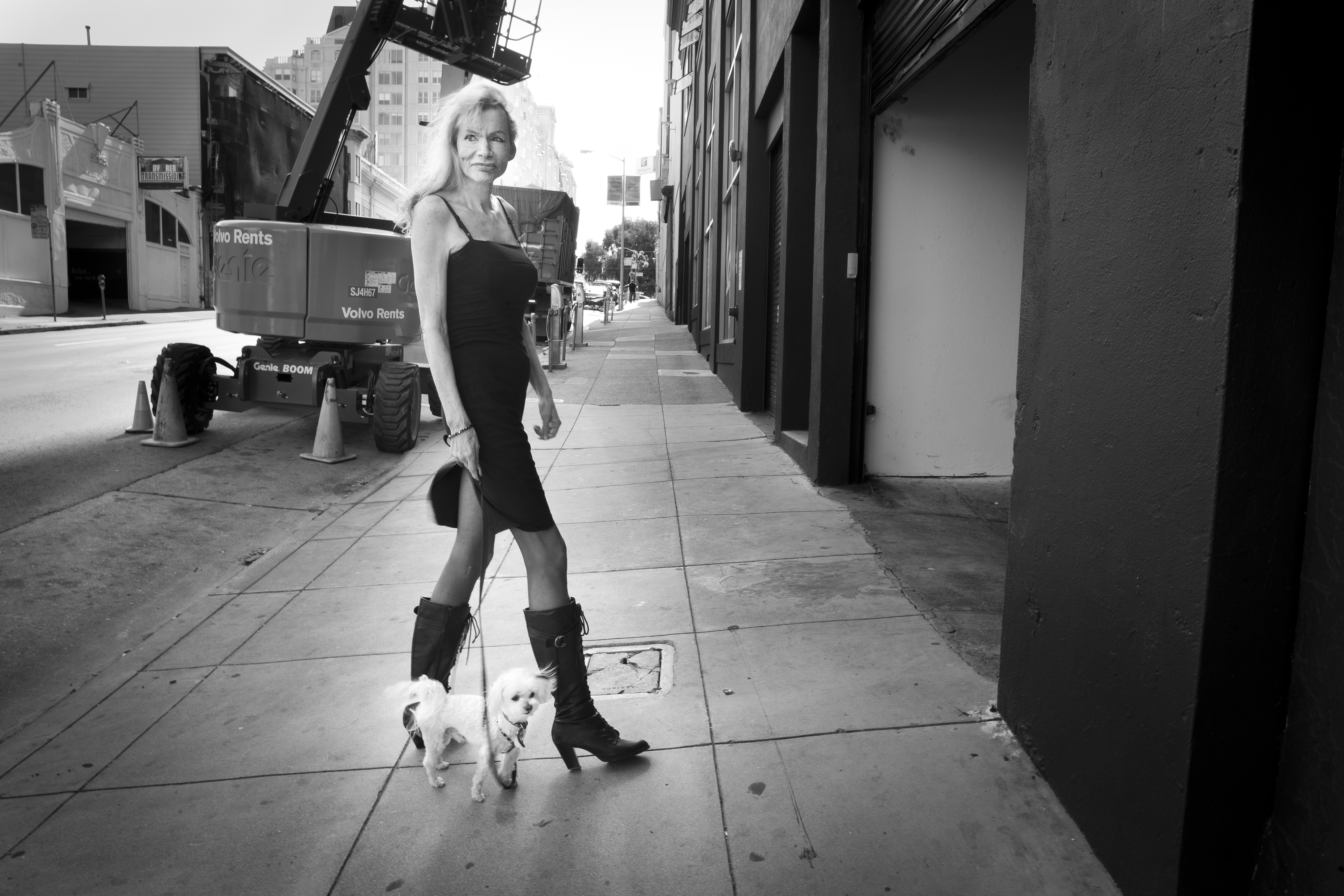
Bambi Lake (photo credit: Ann Grillo; click to enlarge)
Howard, who's known the "notorious" San Francisco artist since the
early '90s, reconnected with Lake when he heard one of her songs, "The
Golden Age of Hustlers," being performed by trans artist Justin Vivian
Bond in New York. Struck by "the depth of Bambi's voice as a
songwriter," he decided to document Bond's contemporary revival of the
soulful tune, its "larger-than-life" originator, and the feel of
pre-AIDS 1970s Polk Street, where Lake once worked as a street hustler.
Sticks and Stones is a short film featuring the now-62-year-old Lake, who continues to entertain crowds in small bars.
The Golden Age of Hustlers is a music video featuring Justin
Vivian Bond's performance, artistic recreations of Lake's hustling
heyday, and archival footage that evokes her "West Coast world" for
uninitiated audiences.

Justin Vivian Bond (photo credit: Janis Vogel; click to enlarge)
"[Co-director Erin Greenwell] and I wanted to make it easier for the
next generation to not hunt for images and art from their community the
way we did," Howard states. The result of their efforts is a lush music
video documenting both an untold history and the history happening
today -- what he refers to as an "intergenerational lovefest." Audiences
can look forward to a unique piece that represents the "collective
consciousness of [Bond's] music" and features cameos by predecessors
Kate Bornstein and Flotilla DeBarge, as well as "young artists" like
Bryn Kelly, Untitled Queen, and Merrie Cherry.
(Sticks and Stones
and The Golden Age of Hustlers
will premiere this winter. Learn more here.)
---
TransMedian
TransMedian is a one-woman show. Directed by, produced by,
and centered on stand-up comedian Jordan Wieleba, the film approaches
transition with a gutsy emphasis on "comedic content." Wieleba
elaborates,"Not too many people in transition would be willing to be so
open about it, let alone express it through humor."
While parts of the film are inevitably dramatic,
TransMedian
zooms in on how "comedians work out their often personal struggles on
stage." Although this can leave her vulnerable to judgment, Wieleba
reports that comics "are ultimately rewarded through laughter and
understanding." Her descriptions suggest a much-needed flip of the
social script: Rather than be the butt of someone else's joke, the trans
woman is the agent.
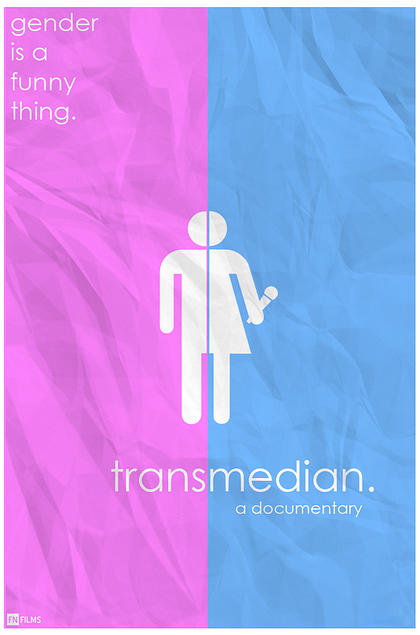
Photo credit: Jordan Wieleba (click to enlarge)
As an artist, Wieleba refuses to fit the norm of what, in her
experience, "people perceive transgender, specifically male-to-female,
people to be --
i.e., hyperfeminized, always cautious, [or]
socially awkward." Spending parts of her youth homeless and touring the
U.S. with a punk rock band shaped her into the brash woman she is today:
"not shy, very outspoken, occasionally abrasive, confident, and
strong." She says that's what helps her tell her story to a new audience
night after night.
Her unabashed approach will extend to her documentary debut. "Like
with [my] comedy, the film will not 'softball' any issues," she
summarizes. "[It] will most likely be targeted to a mature audience."
(TransMedian
is intended for release in late 2014. Learn more here.)
---
For more fascinating trans- and gender-nonconforming-centric stories, check out Crossing Over, Kumu Hina, Assigned Sex, Performing Girl, Las Muxhes de Mexico, Drag Dad, Passing Ellenville, and MAJOR!.
Follow Mitch Kellaway on Twitter:
www.twitter.com/mitchkellaway














